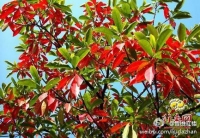lù míng LU MING
sì mǔ SI MU
huáng huáng zhě huá HUANG HUANG ZHE HUA
cháng dì CHANG DI
fá mù FA MU
tiān bǎo TIAN BAO
cǎi wēi CAI WEI
chū chē CHU CHE
dì dù DI DU
| 多首一页 |
dì dù
DI DU
鹿鸣之什
yòu dì zhī dù, yòu huǎn qí shí。 wáng shì mí gǔ, jì sì wǒ rì。 rì yuè yáng zhǐ, nǚ xīn shāng zhǐ, zhēng fū huáng zhǐ。
yòu dì zhī dù, qí yè qī qī。 wáng shì mí gǔ, wǒ xīn shāng bēi。 huì mù qī zhǐ, nǚ xīn bēi zhǐ, zhēng fū guī zhǐ!
zhì bǐ běi shān, yán cǎi qí qǐ。 wáng shì mí gǔ, yōu wǒ fù mǔ。 tán chē chǎn 々, sì mǔ guǎn々, zhēng fū bù yuǎn!
fěi zài fěi lái, yōu xīn kǒng jiù。 sī shì bù zhì, ér duō wéi xù。 bǔ shì xié zhǐ, huì yán jìn zhǐ, zhēng fū 'ěr zhǐ!
yòu dì zhī dù, qí yè qī qī。 wáng shì mí gǔ, wǒ xīn shāng bēi。 huì mù qī zhǐ, nǚ xīn bēi zhǐ, zhēng fū guī zhǐ!
zhì bǐ běi shān, yán cǎi qí qǐ。 wáng shì mí gǔ, yōu wǒ fù mǔ。 tán chē chǎn 々, sì mǔ guǎn々, zhēng fū bù yuǎn!
fěi zài fěi lái, yōu xīn kǒng jiù。 sī shì bù zhì, ér duō wéi xù。 bǔ shì xié zhǐ, huì yán jìn zhǐ, zhēng fū 'ěr zhǐ!
译者: James Legge
【北美枫文集】shī jīng
【资料来源】 The English translation text was taken from The Chinese Classics, vol. 4 by James Legge (1898) and checked against a reprinted edition by Wen Zhi Zhe chu pan she (Taiwan, 1971). Transliteration of Chinese names in the English translation were converted to
